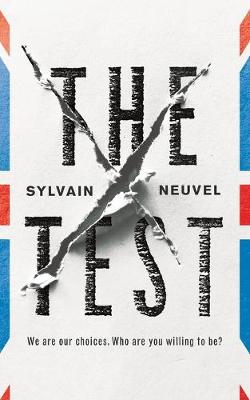Reviewed by nannah on
Content warnings:
- Islamophobia
- fatphobia
- homophobia
- transphobia
- sexism
- child abuse (& domestic abuse mention)
- nonconsensual use of medication
Representation:
- the main protagonist is Muslim and an immigrant from Iran
- the other PoV character is a first-generation Indian-British citizen
In a near-future “dystopian” UK, Idir Jalil takes the British Citizenship Test. But he’s barely begun when a shooter bursts in and takes him and the other test takers hostage. And when Idir draws attention to himself, he finds himself forced to choose which people die when the shooter decides to take lives.
I love the beginning. The first few chapters have such a compelling and distinct voice. But then the shooter comes into play -- and worse, the “twist” happens (I’m not sure if I can really call it a twist, because it comes so early in the story! I didn’t actually know it was supposed to be one, either, until I went back to the book’s goodreads page). In the end, another goodreads review sums it up best: ”If you forcibly put someone through a [traumatic] event, they will be traumatized. The concept fell fully flat ….”
The author also bashes me over the head with one lesson in morality (and psychology) after another. It’s exhausting, even if I mostly agree with what he says (how did reverse racism and pro-cop sentiments get in there, though? No, please!). The shooter is obnoxiously childish, too, his dialogue almost laughable at times. And at one point, the prose was filled with so much telling, I forgot this was an actual published piece of work (the typo was there in the text, too):
“Deep is upset. He’s not thinking about himself at this point. [...] What Deep is experiencing is just narcissistic identification and a very strong case of narrative transportation. At this point, Deep is incapable of separating Idir’s success of failure from his own. He’s so caught up in the simulation that his feelings and opinions are filtered through the rules of the game.”
I’m being extremely critical, I’m sorry. I just didn’t see the mind-bending, mind-blowing critique of immigration I was hoping for.
Reading updates
- Started reading
- 25 October, 2021: Finished reading
- 25 October, 2021: Reviewed
